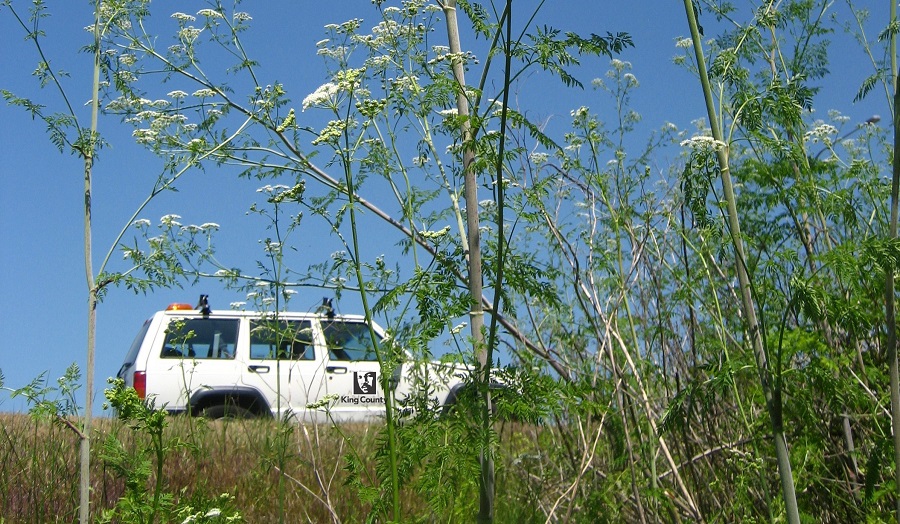Nix noxious weeds with natural yard care
Non-chemical methods for controlling noxious weeds protects people, pollinators, native plants, and wildlife

With increasing sunshine and warmth in the spring, you might be looking at your yard with visions of a lush garden or lawn. Don’t let noxious weeds put a damper on your goals.
Beyond being an eyesore, invasive plants can harm native plants and wildlife. They also spread quickly and can be impossible to eradicate. Noxious weeds cost our region millions of dollars in lost agricultural production, environmental degradation, and added maintenance costs. Some noxious weeds can be mistaken for other plants and can poison people and pets through accidental ingestion. For example, poison hemlock can look like carrot greens (fronds). Other invasive plants, like giant hogweed, can cause blisters or burns if you touch them.
But wait, put the weed-and-feed down! Pesticides and weed killers can be a tempting solution, but these products are made of harsh ingredients that can cause eye, skin, and throat irritation and other negative health effects. Pesticides can also harm pollinators and other wildlife. Before you turn to chemical products, try safer alternatives that keep people and the environment safe from hazardous exposure.
Identifying noxious weeds:
- View a photo guide and information index to learn about plant identification, impact, and control methods.
- Follow the Noxious Weeds blog for timely tips, information, and other updates.
Controlling and disposing of noxious weeds:
- Put on long pants, closed-toed shoes, gloves, and other protective clothes. Pull or dig up the weed(s). Make sure you get the entire root system out and carefully bag any seeds or flowers. Please dispose of noxious weeds in the garbage (not the compost/yard waste bin).
- Once you remove noxious weeds in your lawn or garden, replace them with native plants. Native plants are beautiful, provide habitat for pollinators and wildlife, and save water. Check out the Native Plant Guide to find the best plant for you. If you’ve got the space, consider planting a rain garden filled with native plants that will help filter polluted stormwater to protect salmon, orca, and our water quality.
Ready to ditch chemical weed killers and other pesticides? We love to see it! You can take partially full pesticide products to a hazardous waste collection site in King County. Empty containers go in the garbage (not the recycling bin). If you’re easing into your switch to safer yard care, be sure to read product labels and choose the least hazardous option that is available.
If you’re looking for more help with natural yard and garden care, call the Garden Hotline at 206-633-0224 or browse natural yard and garden resources by King County Department of Natural Resources and Parks.
Photo credit: King County Noxious Weed Control Program
 Translate
Translate